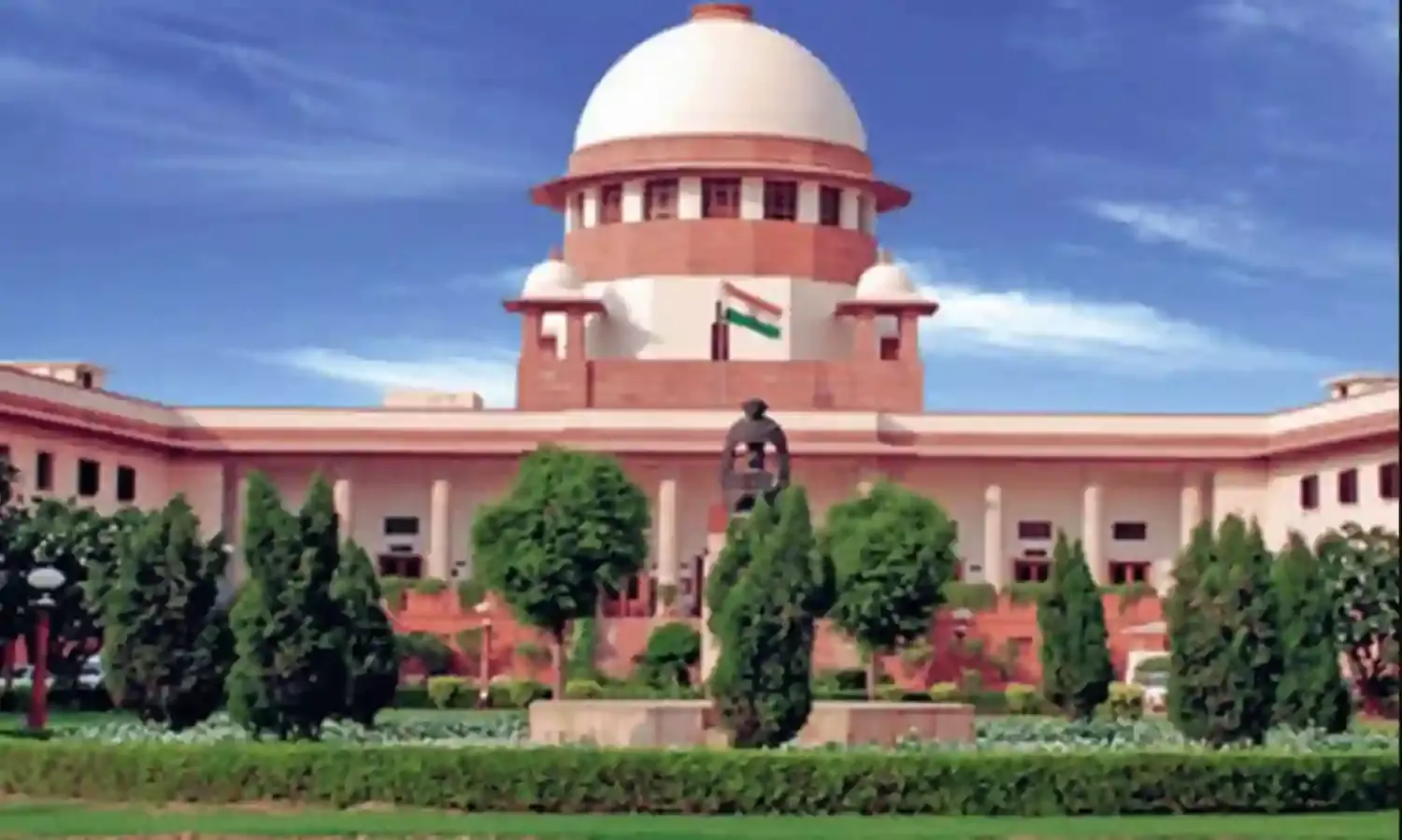SC Tells States To Respond In Anti-Conversion Matter
Supreme Court issues notice to Chhattisgarh, Gujarat, Karnataka, Haryana, Jharkhand

As new cases of violence against Christians emerge from different parts of the country, the Supreme Court has issued notice to five states – Chhattisgarh, Gujarat, Karnataka, Haryana and Jharkhand – on petitions challenging new “anti-conversion” laws brought in by these states.
Notice had also been issued to four other states – Uttar Pradesh, Uttarakhand, Himachal Pradesh and Madhya Pradesh – earlier.
Named as the Anti-conversion Law, it is, at the moment, in force in nine out of 29 states – Arunachal Pradesh, Odisha, Madhya Pradesh, Chhattisgarh, Gujarat, Himachal Pradesh, Jharkhand, Karnataka, and Uttarakhand.
Recently, in Uttar Pradesh’s Prayagraj, the government-aided Sam Higginbottom University of Agriculture, Technology and Sciences (SHUATS), has landed in fresh trouble with the Fatehpur police lodging an FIR against eight of its officials, including the vice-chancellor and two pro Vice-Chancellors, for criminal conspiracy, and under the UP Prohibition of Unlawful Conversion of Religion Ordinance 2020.
This came a month after its top officials received notices from the Uttar Pradesh Police in connection with alleged conversions of Hindus to Christianity in Fatehpur.
In a report taken out by the Dr. Sujith Varghese Thomas Senior Administrative Officer at Broadwell Christian Hospital, it was revealed that the staff is being harassed not only by the Right Wing organisations, but by the police officials.
“…the forced conversion narrative has been spreading all across the nation. Fatehpur is just one example of the injustice and trauma that Christians are going through in our nation,” Dr. Thomas said.
He added that 35 people and their families have been traumatised for nearly a year for the only crime of having gone to church to pray on Maundy Thursday. “It is inconceivable that this travesty of justice has not been stamped out immediately, but rather is drawing in more and more victims. It is so terribly sad that people who are sincerely trying to help their fellow human beings in need of going way out of their comfort zone to serve in this difficult place are being forced to contend with the very people who should be protecting them,” he added.
Meanwhile, the Supreme Court’s decision came after a case was filed against the Anti-conversion Laws, in December 2019.
However, since then, two states have introduced the Act, and five more states have brought in such Laws. With the court’s permission, the Citizens for Justice and Peace (CJP) amended its earlier petition to reflect this change and filed a fresh petition on the five states with newer laws.
Organisations like CJP and the Jamiat Ulama-i-Hind have challenged the laws against religious conversions in different States. The Supreme Court had agreed to hear these petitions in November 2022.
The Indian Constitution guarantees the right to freedom to practise their religion to not only individuals but also religious groups in India, this is mentioned in Article 25 of the Constitution. The Constitution of India clearly declares that the Right to Freedom of Religion is a fundamental right. It also mentions religious liberty in the Preamble, and Article 25(1) of the Constitution guarantees the right to “freedom of conscience and free profession, practice and propagation of religion”.
Several Bharatiya Janata Party-ruled states have brought in new ‘freedom of religion’ laws, which right-wing groups have made clear are meant to tackle the bogey of ‘love jihad’. In Uttar Pradesh, for example, there have been reports of how this law is being used to harass interfaith couples, particularly Muslim men marrying Hindu women.
In the same batch of petitions being heard by the Supreme Court, there are also petitions seeking action against alleged forced conversion. One of those was filed by BJP leader Ashwini Kumar Upadhyay. His lawyer, senior advocate Arvind P. Datar, told the court on Friday that Upadhyay’s additional affidavit was being withdrawn since objections had been made to statements made in it.
"There were some objections to some portions. We are withdrawing that additional affidavit," Datar said.
Senior Advocate Dushyant Dave appearing for a minority organisation said that there are 'vexatious and baseless' allegations in Upadhyay's main petition as well. Dave also said that Upadhyay had earlier filed similar petitions both before the Delhi High Court and the Supreme Court.
The Court then said that it will hear in detail when the matter is heard and proceeded to adjourn the case. In High Court, he withdrew, here (in Supreme Court) it was dismissed," Dave contended.
The Bench agreed to the same. "Yes, it was pointed out to me. Justice Nariman had (dismissed the same)," the CJI remarked.
The top court was hearing multiple petitions, some of them against religious conversions, and some others challenging the stringent anti-conversion laws in States.
The plea filed by Upadhyay has sought stringent steps to tackle forceful religious conversions. The public interest litigation (PIL) petition has claimed that fraudulent and deceitful religious conversion is rampant across the country, and that the Central government has failed to control its menace.
Upadhya's plea was earlier being heard by a bench headed by Justice MR Shah who had observed that forceful religious conversion is a very serious issue that threatens the security of the country and citizens' freedom of conscience.
The bench led by Justice M.R. Shah had earlier taken a dim view of religious conversion in the guise of charity, stating that the intention of persons offering such charity will have to be examined in such cases.
The Supreme Court had earlier this month directed the parties challenging anti-conversion laws of various States, to file a single common transfer petition seeking the transfer of similar petitions pending before various High Courts to the Apex court. The matter will now be heard on March 17.



